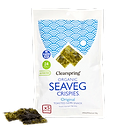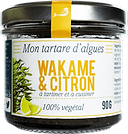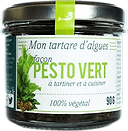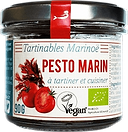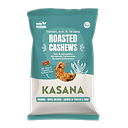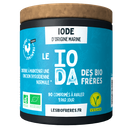Iodine: a vital mineral often overlooked
Iodine is a trace element essential for proper thyroid function—the small butterfly-shaped gland at the base of the neck. It plays a key role in hormone production that regulates metabolism, body temperature, growth, and nervous system function.
Yet, multiple studies suggest a significant portion of the population may experience iodine insufficiency—often unknowingly. Causes include a diet increasingly low in marine products, limited use of iodized salt, and a growing trend toward processed foods that lack this nutrient.
But how can you determine if you're affected? This mini-test gives you some clues.
Test: Are you at risk of iodine deficiency?
Answer the following questions honestly and calculate your score:
-
Do you eat fish or seafood at least twice a week?
- Yes: 0 points
- No: 2 points
-
Do you use iodized salt in your daily cooking?
- Yes: 0 points
- No or unsure: 1 point
-
Do you follow a vegetarian or vegan diet?
- No: 0 points
- Yes: 2 points
-
Do you frequently feel tired for no apparent reason?
- No: 0 points
- Yes: 1 point
-
Do you often feel cold, even when others seem comfortable?
- No: 0 points
- Yes: 1 point
-
Have you noticed dry skin or dull, brittle hair?
- No: 0 points
- Yes: 1 point
-
Do you regularly consume seaweed or iodine-rich supplements?
- Yes: 0 points
- No: 2 points
-
Are you currently pregnant or breastfeeding?
- No: 0 points
- Yes: 2 points
Results
0 to 3 points: Low risk
You appear to be covering your iodine needs through a varied diet. Continue including natural iodine sources regularly—especially if you limit animal products—and monitor intake over time.
4 to 6 points: Recommended vigilance
Some dietary choices or symptoms may indicate insufficient intake. While not necessarily a deficiency, it may be useful to reintroduce plant-based iodine sources, like seaweed—or consult a healthcare professional if symptoms persist.
7 points or more: Possible deficiency
Your score shows multiple risk factors. Consider consulting a medical or naturopathic professional, especially if physical symptoms are present. Quickly adding iodine‑rich foods can be a helpful first step.
Where to find iodine naturally
Iodine is primarily found in marine products and certain plant sources. Key foods include:
- Fish and seafood: cod, mackerel, sardines, shrimp… These are the most concentrated sources. One to two servings per week generally meet iodine needs.
- Edible seaweeds: nori, wakame, dulse, kombu… These marine plants are very rich in iodine, often exceeding levels in fish. Ideal for vegetarians or vegans. If their taste is strong at first, there are accessible products like seaweed-based spreads, rice noodles with wakame, toasted nori snack sheets, or blends from brands like Kasana enriched with seaweed.
- Dairy products: milk, cheese, and yogurt can contain iodine—especially when derived from animals fed iodine-enriched feed.
- Eggs: a solid option for those avoiding meat or fish.
- Iodized salt: effective but should be used in moderation—especially for low‑sodium diets.
In summary
Iodine is a crucial micronutrient often overlooked. Whether you're vegetarian, transitioning in your diet, or simply health-conscious, incorporating natural and plant-based iodine sources is a simple, effective strategy. Seaweed offers an ideal solution: practical, economical, and nutritionally rich.


